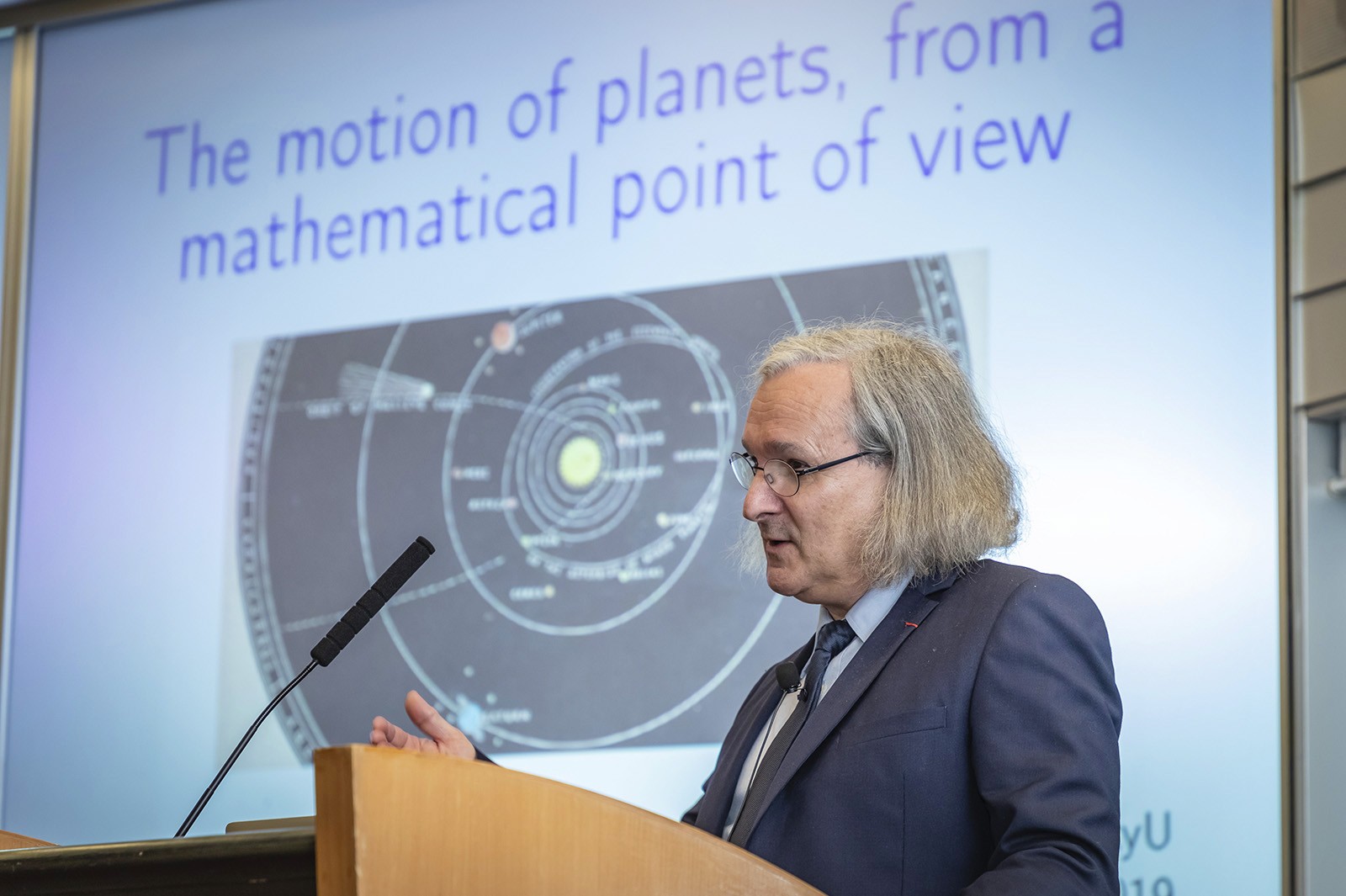The motions of planets
The motion of planets has fascinated scientists for hundreds of years, and since Newton and his gravitation theory, the problem has become more mathematical, explained Professor Étienne Ghys, Permanent Secretary of the French Academy of Sciences and the Director of Research at the French National Center for Scientific Research (CNRS).
Professor Ghys was speaking at the France–Hong Kong Distinguished Lecture at City University of Hong Kong (CityU) on 4 April, and his talk was titled “The Motion of Planets, from a Mathematical Point of View”.
Mr Alexandre Giorgini, Consul General of France in Hong Kong and Macau, opened the lecture by complimenting CityU for inviting so many distinguished French scientists to Hong Kong for talks over the past few years.
Professor Ghys began with a historical overview of key figures such as Ptolomy, Copernicus and Kepler, and several others, who worked on the problems of understanding the motion of celestial bodies.
He was especially interested in understanding, calculating and predicting the so-called 3-body problem, i.e. how we can describe the motion of three objects in space attracting each other according to gravitation, a problem for which there is no general solution.
“To understand the motions of planets is highly complex but we have come a long way to better understanding through the use of mathematics,” he said.
This was not Professor Ghys’ first France–Hong Kong Distinguished Lecture at CityU. He gave a talk titled “The Shape of The Planet Earth? An Unexpectedly Deep Mathematical Challenge!” on 5 October 2016.
The France-Hong Kong Distinguished Lectures are a series of high-profile lectures organised by CityU under the auspices of the French Academy of Sciences, the Consulate General of France in Hong Kong and Macau, and The Légion d’Honneur Club Hong Kong Chapter.
The first lecture was held in 2005, and at least one lecture is held each year.
